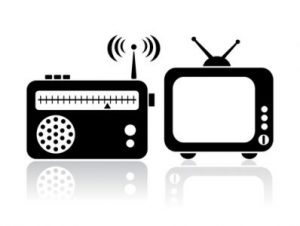Last week I wrote about a drama (Little Boy Blue) that told the true story of a murdered young boy. I wasn’t expecting another such story to come along so soon, but it was worth it.
Damilola, Our Loved Boy (BBC One, last Sunday night) told the tragic story of Nigerian schoolboy Damilola Taylor, stabbed to death in London in 2000, and the efforts of his parents to come to terms with his loss and seek justice. I was glad it avoided sentimentality and didn’t gloss over the family conflicts caused by the death. Guilt, blame, regret and anger provided for a totally credible emotional landscape.
The murder was heart-breaking, but the emotional fallout in the family was also painful, and communication deteriorated, often to the point of stony silence.
The mother, Gloria, was played by Wunmi Mosaku, who deservedly won the BAFTA Best Supporting Actress award for the role, and was adept conveying the spectrum of emotions from joy to shock. She was the rock of sense and strength in the family and the one most committed to her Christian faith.
She was the focus of the many impressive prayer scenes – especially praying for the strength to cope. In one scene, before the court case, she stresses to her other son: “God did not give us a spirit of fear.” Her husband, Charles Taylor, played by Babou Ceesay in an equally impressive performance, is loving but authoritarian, inclined to blame and subject to dark moods.
He finds some relief in helping troubled juveniles, but as he genuinely stresses the need for father figures, discipline and respect, he seems often oblivious to the needs of his own family. Eventually, in a particularly poignant scene, Gloria has to confront him with some home truths.
Also on BBC One, The Big Questions (BBC 1 Sunday mornings), hosted by Nicky Campbell, is nearing the end of its current run. Last Sunday’s show included the rather intriguing question ‘Can white people be the victims of racism?’ Personally I would have thought a ‘yes’ answer was a no-brainer, but not all agreed.
Some defined racism as “prejudice plus power”, and it was usually white people who had the power. Others disagreed, and at one stage Campbell suggested that maybe the Irish in the UK had suffered from racism. Useful distinctions were made between out and out racism and discriminatory practices, often carried out on the basis of religion and national identity rather than race per se.
Ideology
One contributor asked “What do we mean by white?”, another talked of people “re-racialising”, but I couldn’t get a good sense of what that meant. Something to do with identity politics and ideology I guessed.
Another big question was whether morality came from religion or evolution – fair enough it was just a starting point but, as one impressive contributor, Megan Loumagne from Oxford University, suggested, it created a dichotomy where it didn’t need to be – the two viewpoints were “mutually enriching discourses”, and the hostility between them was overblown.
Faced with the idea that people in general have moral instincts and that even primates seem to show altruism she said that that as God created the world it made sense that these patterns were built in.
One researcher thought religion had a useful role to play in codifying and formalising morality, and also in forming moral communities. Campbell reminded us that “some of the world’s greatest evolutionary biologists were very devout Christians”.
The discussion was mostly polite and respectful, with quite a bit of agreement between the ‘sides’, but one man lambasted the doctrine of original sin (which, I think, he woefully caricatured) and complained of ‘Catholic guilt’. Sometimes I think that people who complain of that may actually have something in their lives they need to deal with, that they may have misdiagnosed a justified guilt that’s deep rooted. Just sayin’!
Finally, a few other items worth catching up with – last Monday morning there was quite a heated but instructive debate on Newstalk’s Breakfast Show between Michael Nugent of Atheist Ireland and Seamus Mulconry of the Catholic Primary Schools Management Association on the question of denominational education.
And also worth following is Arena: American Epic (BBC 4 Sunday nights) Robert Redford’s look at American roots music. Last Sunday’s episode featured a fascinating look at early gospel music from the Deep South – historical, inspirational and hugely influential.
Pick of the week
Songs of Praise
BBC 1, Sunday, June 4, 5pm
Celebrating the golden jubilee of Liverpool’s iconic Metropolitan Cathedral, plus music to celebrate the Feast of Pentecost.
The World’s Biggest Refugee Camp
TV3, Monday, June 5, 8pm
News anchor Colette Fitzpatrick and actor Liam Cunningham travel to the world’s largest refugee camp in Uganda.
My Country, My Faith: Ireland
EWTN, Wednesday, June 7, 7pm
Fr Brian Lawless and Michael Murphy share with Fr Owen Gorman the inspiring life and witness of Venerable Matt Talbot.


 Brendan O’Regan
Brendan O’Regan
